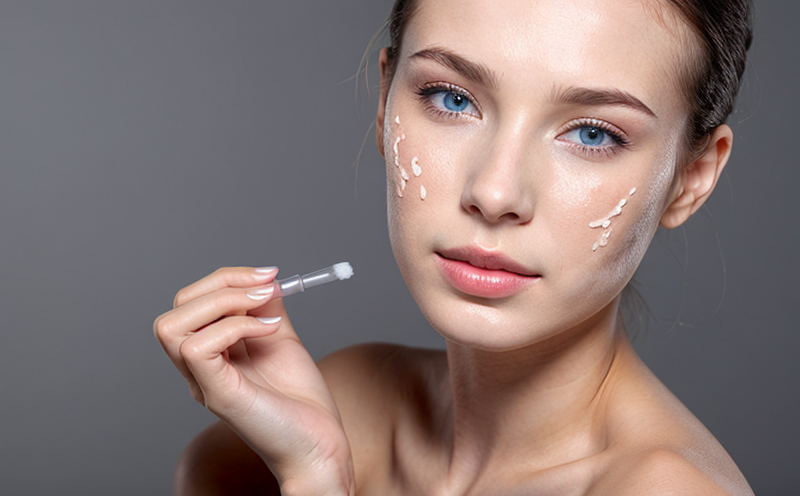Irritation Testing of Retinol Cosmetic Formulations
The testing of retinol cosmetic formulations involves a series of rigorous evaluations aimed at ensuring product safety and efficacy. Retinoids, including retinol, are potent skin care ingredients known for their anti-aging properties but can also cause irritation if not properly formulated or used. This service ensures that these products meet the highest standards of safety before reaching consumers.
The primary goal is to assess the potential for contact dermatitis and sensitization reactions in individuals using retinol-based cosmetics. Regulatory bodies like the European Union (EU) and the United States Food and Drug Administration (FDA) have stringent requirements regarding the testing and labeling of such products, particularly those containing retinoids.
The service typically begins with a detailed review of the product formulation to identify potential irritants or sensitizers. This is followed by in vitro tests using human skin models, which replicate the conditions under which the product will be used. The test subjects are exposed to the formulations for set periods, and their responses are monitored through various physiological indicators.
The testing process adheres to international standards such as ISO 10993-10:2008, which provides guidelines on biocompatibility assessment of medical devices. While this standard is focused on medical devices, its principles apply equally to the evaluation of cosmetic products for irritation and sensitization.
During these tests, multiple parameters are closely monitored to gauge any adverse effects on the skin. These include redness, swelling, itching, and changes in skin integrity. The data collected during these evaluations is meticulously recorded and analyzed to determine whether the product falls within acceptable limits for irritation and sensitization.
The results of these tests play a crucial role in ensuring compliance with regulatory requirements. They also provide valuable insights into the safety profile of the product, which can be used by quality managers and R&D engineers to refine formulations further. For procurement teams, this service ensures that they are sourcing only high-quality, safe products.
- Compliance with EU Cosmetics Regulation (EC) No 1223/2009
- Adherence to FDA regulations on cosmetic product safety
- Conformance to ISO standards for biocompatibility assessment
The testing process is not only about identifying potential risks but also about enhancing the overall quality of retinol-based cosmetics. By adhering to these stringent protocols, we ensure that consumers can use these products with confidence, knowing that they have been thoroughly evaluated for their safety.





